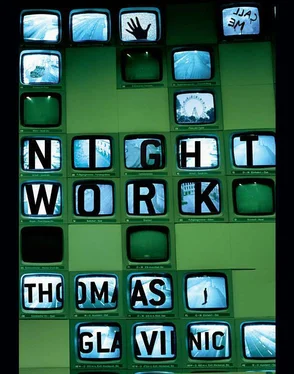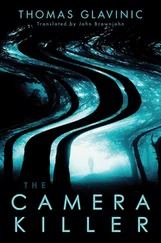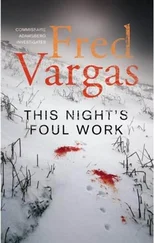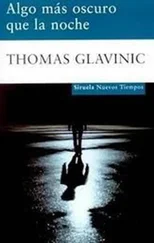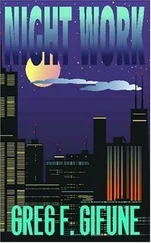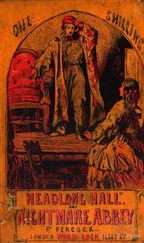Thomas Glavinic - Night Work
Здесь есть возможность читать онлайн «Thomas Glavinic - Night Work» весь текст электронной книги совершенно бесплатно (целиком полную версию без сокращений). В некоторых случаях можно слушать аудио, скачать через торрент в формате fb2 и присутствует краткое содержание. Год выпуска: 2008, Издательство: Canongate Books, Жанр: Современная проза, на английском языке. Описание произведения, (предисловие) а так же отзывы посетителей доступны на портале библиотеки ЛибКат.
- Название:Night Work
- Автор:
- Издательство:Canongate Books
- Жанр:
- Год:2008
- ISBN:нет данных
- Рейтинг книги:5 / 5. Голосов: 2
-
Избранное:Добавить в избранное
- Отзывы:
-
Ваша оценка:
- 100
- 1
- 2
- 3
- 4
- 5
Night Work: краткое содержание, описание и аннотация
Предлагаем к чтению аннотацию, описание, краткое содержание или предисловие (зависит от того, что написал сам автор книги «Night Work»). Если вы не нашли необходимую информацию о книге — напишите в комментариях, мы постараемся отыскать её.
Night Work — читать онлайн бесплатно полную книгу (весь текст) целиком
Ниже представлен текст книги, разбитый по страницам. Система сохранения места последней прочитанной страницы, позволяет с удобством читать онлайн бесплатно книгу «Night Work», без необходимости каждый раз заново искать на чём Вы остановились. Поставьте закладку, и сможете в любой момент перейти на страницу, на которой закончили чтение.
Интервал:
Закладка:
He went to his desk, booted up his computer and tried to access the Internet.
‘This page cannot be displayed. There may be technical problems, or you should check your browser settings.’
He clicked on the address line and typed:
www.orf.at
‘This page cannot be displayed.’
www.cnn.com
‘This page cannot be displayed.’
www.rtl.de
‘This page cannot be displayed. Try the following: Click on “update” or repeat the procedure later.’
The old floorboards creaked beneath his feet as he toured the offices once more, closely scrutinising them for something that hadn’t been there on Friday evening. He picked up Martina’s phone and dialled a few stored numbers. Answering machines only. He blurted out some incoherent messages followed by his phone number. He had no idea who he was speaking to.
He went to the kitchenette, took a can of lemonade from the fridge and drained it in one.
After the final swallow he swung round abruptly.
No one there.
He removed another can from the fridge without taking his eyes off the door. This time he paused between swallows and listened, but all he could hear was the lemonade fizzing in the can.
Please call me ASAP! Jonas
He stuck the Post-it on Martina’s computer screen and hurried to the exit without checking the other offices again. It was a spring lock, so he didn’t bother to double lock the door. He ran down the stairs three at a time.
*
For years his father had been living in Rüdigergasse, in the 5th District. Jonas liked the area but had taken an instant dislike to the flat, which was too dark and too overlooked. He loved to look down on the city from above. His father didn’t mind passers-by gawping at him in his living room. It’d been like that before and he was used to it. Besides, he’d wanted to make things easier for himself since his wife’s death. The flat was a few steps from a supermarket and there was a GP’s surgery on the floor above.
On his way into the 5th District, Jonas had an idea: why not make a racket? He honked his horn as if he were in a wedding convoy. The speedo needle quivered on twenty. The engine stuttered.
Some streets he drove along twice. He looked left and right to see if a door or a window opened. It took him almost half an hour to cover the short distance to the flat.
He stood on tiptoe and peered through his father’s window. The light was off. So was the TV.
He inspected the street, taking his time. This car’s wheels were touching the kerb, that one was parked further out. A bottle protruded from a dustbin, the plastic cover on a bicycle saddle flapped gently in the breeze. He counted the motorbikes and mopeds outside the building. He even tried to memorise the position of the sun. Only then did he get out his duplicate key and open the front door.
‘Dad?’
Quickly, he locked the door behind him and turned on the light.
‘Dad, are you there?’
He called before he entered every room, trying to make his voice sound deep and forceful. From the lobby he went into the kitchen, then back through the hallway and into the living room. Next, the bedroom. He didn’t forget the bathroom and toilet. He even stuck his head into the larder, with its chill smell of fermentation, of apples and cabbage.
His father, an inveterate collector and hoarder who spread butter on mouldy bread and heated up out-of-date tins in a double saucepan, was not there any more.
Like everyone else.
And, like everyone else, he’d left no clue behind. The whole place looked as if he’d just gone out. Even his reading glasses were lying in their usual place on top of the TV.
In the fridge Jonas found a jar of pickled gherkins that still looked edible. There wasn’t any bread, but he unearthed a packet of rusks in the kitchen cupboard. They would have to do. He didn’t feel like opening the larder door again.
While eating he tried, without much hope, to get a TV channel. He couldn’t entirely dismiss the possibility, because it had occurred to him that his father’s set was connected to a satellite dish. Perhaps only the cable network was affected, in which case some TV channels should be accessible via satellite.
Snow.
*
In the bedroom his father’s old wall clock was steadily beating time. He rubbed his eyes and stretched.
He looked out of the window. Nothing had changed as far as he could tell. The piece of plastic was still flapping in the breeze. None of the cars had moved. The sun was hovering in its accustomed place and seemed to be on course.
Jonas hung his shirt and trousers on a coat hanger. He listened once more for any sound other than that of the clock. Then he slid beneath the bedclothes. They smelt of his father.
*
Semi-darkness. At first, he didn’t know where he was.
In the half-sleep that preceded his awakening, the ticking of the clock, a sound familiar to him since his childhood, had lulled him into the false belief that he was in a different place at a different time. He had heard it ticking as a child while lying on the sofa in the living room, where he was meant to take his afternoon rest. He seldom closed his eyes, just daydreamed until his mother came to wake him with a mug of cocoa or an apple.
He turned on the bedside light. Half-past five. He’d slept for over two hours. The street was so narrow and the sun so low in the sky that its rays were illuminating only the upper floors of the buildings across the way. Inside the flat it was like late evening.
He shuffled into the living room in his underpants. It looked as if someone had just left. As if they’d tiptoed out so as not to wake him. He could positively sense that someone’s lingering imprint on the flat.
‘Dad?’ he called, knowing he wouldn’t get an answer.
While dressing he looked out of the window. The piece of plastic. The motorbikes. The bottle in the dustbin.
No change of any kind.
*
Back home he found some tinned food in the kitchen cupboard. While the plate was rotating in the microwave he wondered when he would go to a restaurant again. He watched the countdown on the display. Another sixty seconds. Another thirty, twenty, ten.
He eyed the food, hungry but with no appetite. Covering the plate with some foil, he shoved it aside and went over to the window.
Below him lay the Brigittenauer embankment. His view of the cloudy, softly gurgling waters of the Danube Canal was partly obscured by a row of lush, luminous green trees. Looming up on the far side were the trees that flanked the Heiligenstädter embankment. The two big Ö3 logos on the roof of the radio station continued to revolve as usual on the right of the BMW building. On the skyline the city was bounded by the wooded local mountains: the Hermannskogel, Dreimarkstein and Exelberg. And soaring above the Kahlenberg, where Jan Sobieski had gone into battle against the Turks over three centuries earlier, was the huge television mast.
Jonas surveyed this panorama. It was the view from the flat that had prompted him to rent it two years ago. He used to stand there in the evenings and watch the sun go down behind the mountains, bathing him in its rays until the very last moment.
He checked that the front door was locked, then poured himself a whisky and returned to the window, glass in hand.
There weren’t many possible explanations. Some catastrophe was to blame. But if everyone had fled from the threat of an attack by nuclear missiles, why hadn’t those missiles landed? In any case, why should anyone take the trouble to waste such expensive technology on an old city that had lost its importance?
An asteroid strike. Jonas had seen films in which kilometre-high tsunamis came surging inland after such an event. Was that what the Viennese had fled from? Had they taken refuge in the Alps? If so, they would have left some trace behind. The authorities couldn’t have evacuated a million-and-a-half inhabitants overnight and forgotten about him alone. And all without his noticing.
Читать дальшеИнтервал:
Закладка:
Похожие книги на «Night Work»
Представляем Вашему вниманию похожие книги на «Night Work» списком для выбора. Мы отобрали схожую по названию и смыслу литературу в надежде предоставить читателям больше вариантов отыскать новые, интересные, ещё непрочитанные произведения.
Обсуждение, отзывы о книге «Night Work» и просто собственные мнения читателей. Оставьте ваши комментарии, напишите, что Вы думаете о произведении, его смысле или главных героях. Укажите что конкретно понравилось, а что нет, и почему Вы так считаете.
